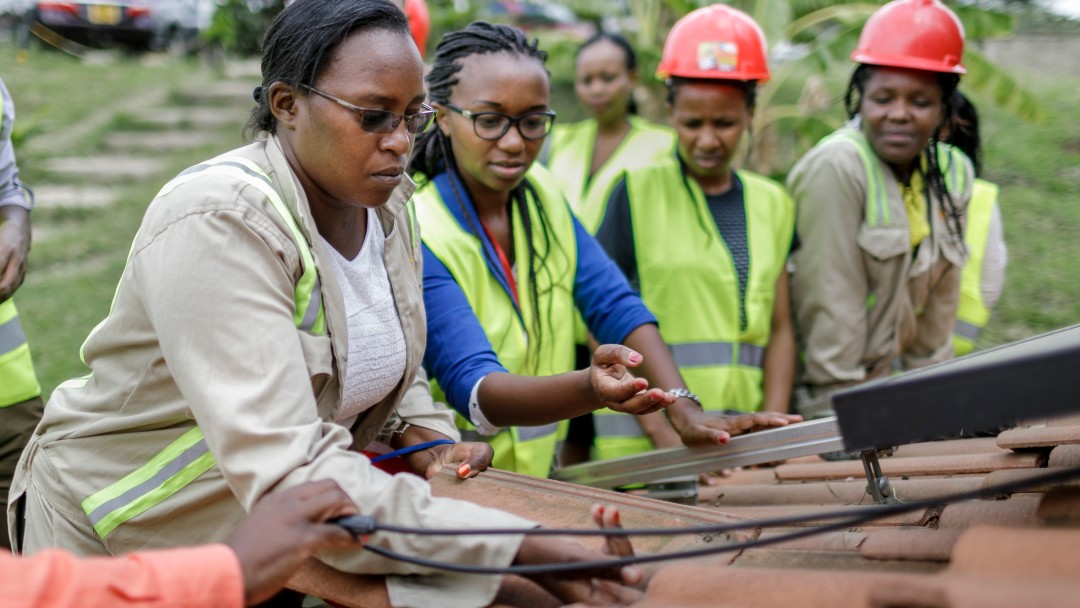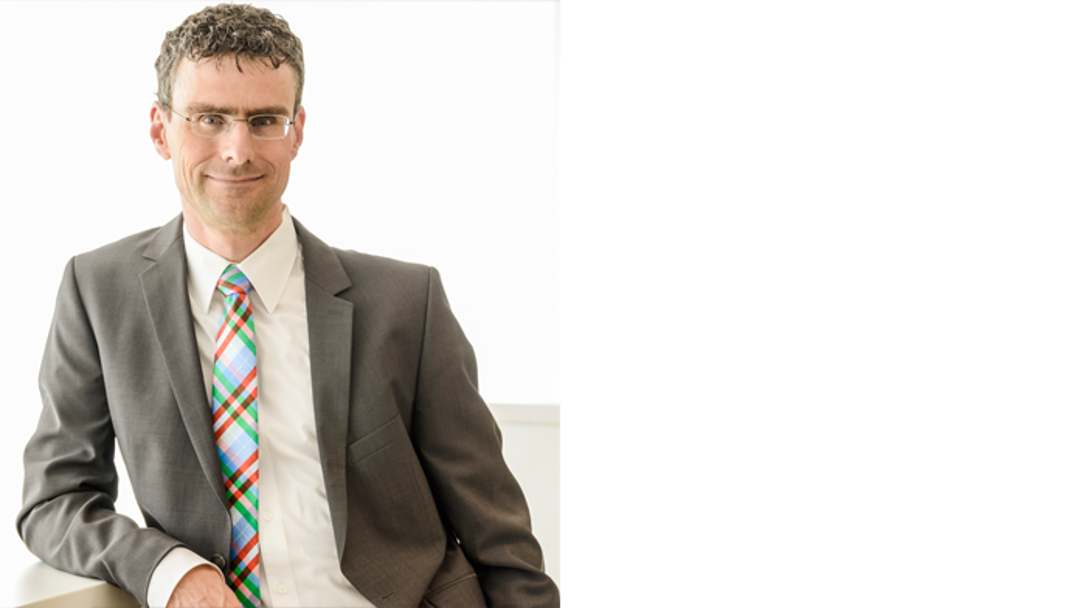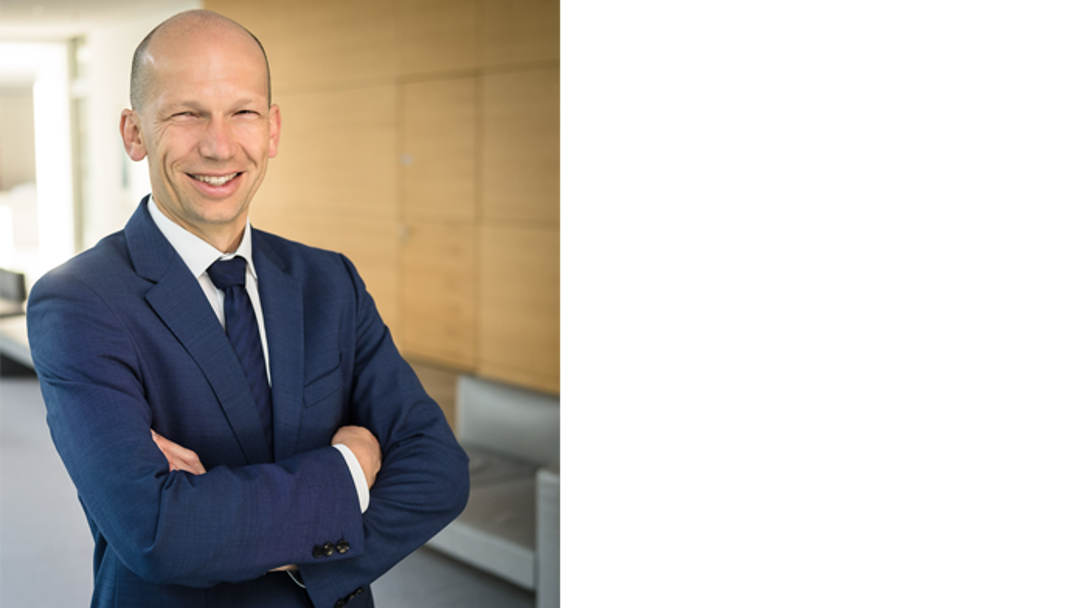Interview with Jan Blum and Stefan Zeeb
Invest for Jobs – Opportunities for Growth in AfricaJan Blum and Stefan Zeeb in an Interview with Susanne Schröder on "Investing for Employment"

Lack of or precarious work, dangerous workplaces, forced and child labor are widespread. The consequences are poverty and lack of prospects. SDG 8 – Decent Work and Economic Growth – aims to ensure that young women and men, in particular, have a job with a future. The aim is to ensure that work is organized in a humane way for all and that it is adequately remunerated. Because in fact everyone has the right to fair and good working conditions. A prerequisite for sustainable and inclusive economic growth is that there are enough jobs and that working conditions are decent. Germany is therefore intensively committed to promoting employment and ensuring compliance with social standards - also in the partner countries of development cooperation.
Following the global economic crisis in 2009, labor productivity and the unemployment rate improved worldwide. Ten years later (2019), the global economy shrinks again and records the lowest growth rate since 2008/2009. In 2020, the coronavirus pandemic hits global labor markets – especially those working in the informal sector. In Africa - where negative growth rates have already been recorded during the past two years – around 95% of the agricultural sector is employed in the informal sector. Outside this sector, the figure is just under 80% (sub-Saharan Africa) and just under 50% in North Africa and the Middle East – these people are particularly hard hit.
As early as 2019 KfW Development Bank founded "Investing for Employment Ltd" in the context of the “Special Initiative on Training and Employment” of the Federal Ministry for Economic Cooperation and Development (BMZ). Stefan Zeeb and Jan Blum are jointly responsible for the Ltd and comment on its background, structure and objectives.
Jan Blum: When BMZ designed the project it was important to create a large number of jobs by acting in close cooperation with companies. A flexible instrument was also desired – and so the Ltd was created, in which we take up and finance the ideas of the companies.
Stefan Zeeb: This flexibility is also demonstrated by the Corona emergency aid of the Ltd. Just like in Europe, the aim is to support distressed companies with urgently needed liquidity so that jobs are preserved. To ensure rapid implementation, the Ltd works together with selected local partners. Nine grant contracts with African financial institutions are already in preparation, some of them shortly before disbursement. These mainly relieve small and medium-sized enterprises in Ethiopia, Côte d'Ivoire, Ghana, Morocco, Rwanda, Senegal and Tunisia. We are expecting a funding volume of up to 80 million euros, and hope to reach well over 1,000 companies with more than 60,000 jobs.
Blum: And a third point is a good interplay of instruments: comprehensive advice (also through GIZ, technical cooperation) and a financial support package complement each other. To sum up: on the one hand, the Ltd is intended to generate employment, but also to focus on the topic of training - and to do so with intensive involvement of the private sector from Germany, Europe and Africa. The establishment of a Ltd is a good way to respond to these needs.

Blum: Very briefly: Africa needs jobs. Jobs for a growing population – in 2050, the population is expected to reach 2.5 billion people.
Zeeb: Especially for the many young people in Africa who are pushing into the labor market, about 20 million jobs are needed every year.
Blum: No, there will – for the time being – be the seven partner countries mentioned above.
Blum: BMZ is flanking the Compact With Africa Initiative agreed during Germany's G20 presidency in 2017 with substantial funding commitments with a "Marshall Plan with Africa". This includes the BMZ's Special Initiative on Training and Employment. We support these efforts through Investments for Employment.
Zeeb: So far, we have around EUR 130 million from BMZ at our disposal – but the need is huge and we are confident that – given the design of investments for employment – we can invest up to EUR 400 million well and sensibly.
Blum: The demand for funding will remain high...

Blum: A preliminary remark: who creates the most jobs – in Africa, but also in Europe? That is the private sector. Obstacles to investment in African partner countries include a lack of training centres and thus a shortage of skilled workers, deficient infrastructure in transport or electricity supply, or even obsolete production facilities. We are not fixed as far as sectors are concerned – in cases of doubt, the private sector knows best where the shoe pinches and makes its applications accordingly.
To illustrate this, here are two concrete examples: a missing access road to an industrial park. A suitable application has indeed been received in Ethiopia. Second example: a juice producer – or even a coffee producer – finds a great demand for his products on the local or international market, but not enough suitable fruit to expand his production and thus create additional jobs. In order to remove this barrier to investment, the limited liability company could support his investment in suppliers – for example in a training centre and equipment for the farmers, or in a functioning logistics chain so that suppliers can supply preliminary products of suitable quality and quantity in the future.
Blum: Back to the access road, for example: in this case, three Ethiopian companies from the industrial park joined forces with the city administration concerned and said: we need this road. In principle, any European or African company can apply, but also government institutions and non-governmental organizations. Our website provides the necessary information.
Blum: Overwhelming! We were positively surprised by the high number of imaginative concept notes. There were almost 200, which were received within a short time. In a first round, we selected 14 proposals; those that were best conceived and those that promised the most jobs per funding volume in the end.

Blum: Of the 14 projects in the final selection, three had German participation, with the applications coming primarily from Ethiopian companies or organizations. But of course, we are happy about every European company that invests in Africa, creates jobs and applies for funding with its idea.
Zeeb: This topic plays a very important role for the special initiative as a whole. In addition to the creation of 100,000 additional jobs, 30,000 training places are also to be created. For it is often a central obstacle to investment that there are no skilled workers. And good training opens the door to the labor market and good employment.
Blum: For us at KfW Development Bank the basic principle is: we only support projects in which decent employment is created. In the special initiative we understand this to mean a minimum period of employment, an appropriate wage and compliance with the ILO core labor standards. In addition, improving existing employment relationships is another declared goal of the special initiative and the Ltd. We therefore also promote measures to improve social security, equality, occupational health and safety, etc.
Zeeb: So we are not only concerned with additional jobs, the companies must also meet certain minimum standards in order to receive support. This is important to us!
Share page
To share the content of this page with your network, click on one of the icons below.
Note on data protection: When you share content, your personal data is transferred to the selected network.
Data protection
Alternatively, you can also copy the short link: https://www.kfw-entwicklungsbank.de/s/enzBXxtc
Copy link Link copied